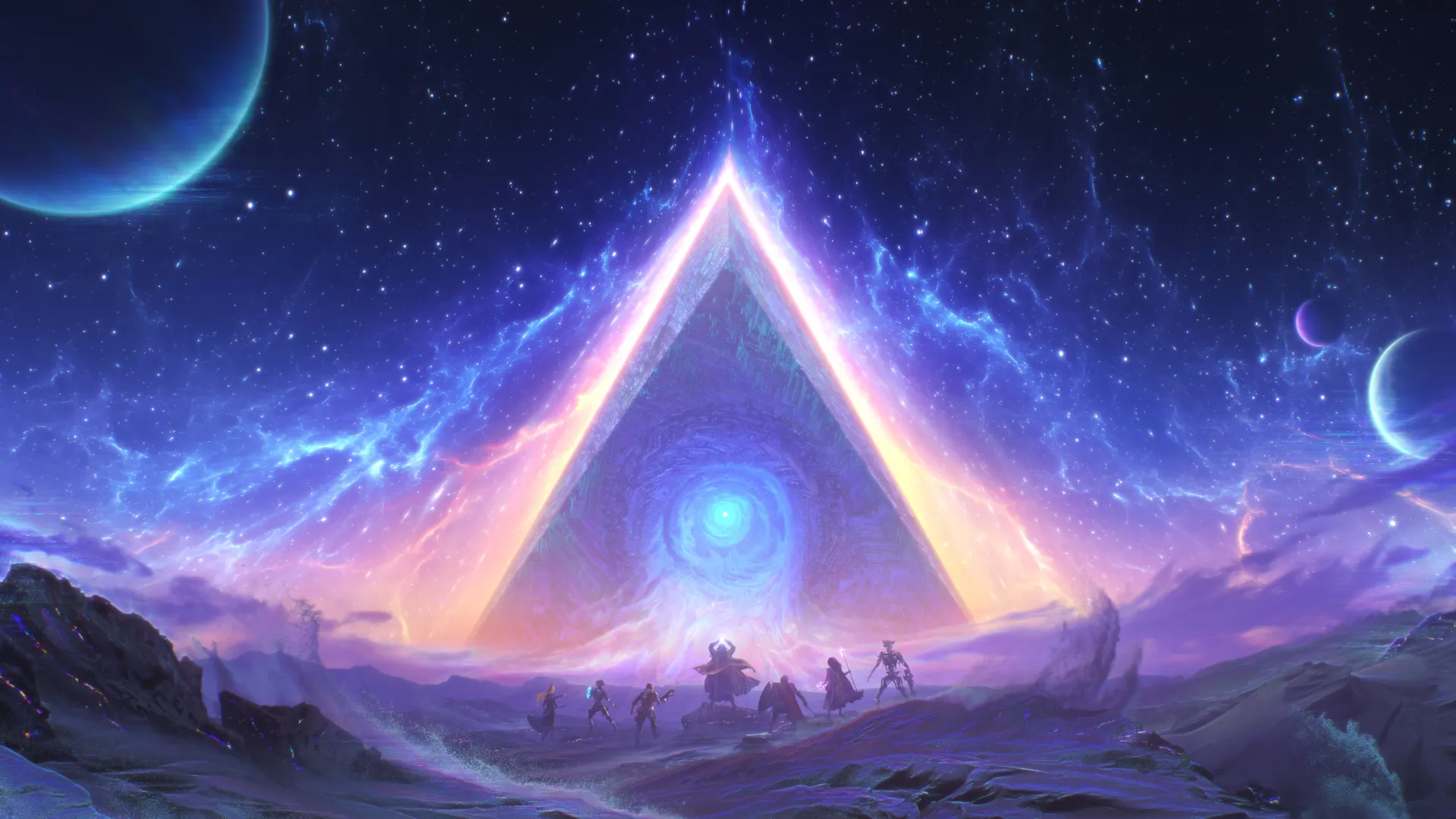Avalon is coming. On Tuesday, online gaming startup Avalon unveiled the first trailer for its upcoming metaverse game of the same name, offering the first substantial glimpse of the experience. It’s led by an array of game industry veterans—and it’ll use both blockchain tech and AI tools.
Launched in 2022, Avalon boasts a team of industry leaders who have worked on landmark games like EverQuest, Call of Duty, Diablo, Assassin’s Creed, Elden Ring, and World of Warcraft. In February, Avalon announced a $13 million raise led by Bitkraft Ventures. Other investors included Hashed, Delphi Digital, Mechanism Capital, and Coinbase Ventures.
According to Jeffrey Butler, Avalon’s chief product officer and former EverQuest creative director, the fantasy game spawned from an attempt to create accessible new tools for other teams.
“Initially, we were building a product that would allow developers like ourselves to create games and create them rapidly—not in new ways, but without the need for any sort of developer-level understanding of how to build games, where we would provide templates and Lego-style modular pieces that we assembled,” he explained.
Avalon collaborated with Didimo and Inworld AI to create its virtual universe. The team utilized Didimo's Popul8 platform for character creation and Inworld AI's advanced AI-driven character engine to design characters and non-player characters (NPCs) to create more engaging and complex characters.
In Avalon, players traverse a virtual universe through portals that can rapidly take them from a medieval world to a cyberpunk landscape. As Butler explained, to keep the game fair and curb potential intellectual property issues, Avalon’s mechanics will filter out in-game items like weapons or vehicles based on the type of world the player finds themselves in.
For example, Butler said citing geek-culture references, Avalon’s filters would keep a player from using the DMC DeLorean from the Back to the Future franchise in a game based on the Star Trek universe.
As Butler explained, the initial rollout of Avalon will include everything an aspiring dungeon master would need to start building a world.
“The initial content creation package that we're delivering is associated with massively multiplayer-style gameplay,” Butler said. “So you'll be able to author dungeons and quests. Every single piece of content in the game will be created not in an editor, and not in Maya or Blender or some proprietary tool. It's created in the game.”
According to Butler, a playable beta test for Avalon will drop in 2024, with a full release coming in 2025. Avalon will also feature a monetization feature for developers, he said.
“We're going to offer everyone the opportunity to create content with us in our core rule set,” Butler said. “So if you wanted to make the tomb of horrors in a cyberpunk style and have a match with everything in Avalon, no problem—you can publish it and make money.”
Butler also discussed Avalon’s commitment to diversity in gaming, saying that Avalon uses generative AI to include as many ethnicities based on real-world communities as possible.
“If we're going to have a metaverse, every living person in the world that we can accommodate needs to be able to look at the screen and see themselves—if that's what they want to do,” Butler said. “That is incredibly important. We've worked hard to be inclusive and represent as many ethnicities as our resources allow.”
Underpinning Avalon is blockchain technology that Butler said Avalon will use to give players ownership over the items they earn and buy, something he emphasized is necessary for the future of gaming. While Butler did not reveal which blockchain Avalon would use, he stressed that players should own the items they buy.
“I have documents going back to 1999 working on EverQuest that focus on the idea that the things you would earn in our game, whatever the game would be, would belong to you,” Butler said, pointing to the sci-fi novel Ready Player One as an example.
Game studios outside the cryptocurrency industry have worked to incorporate player-owned collectibles into their games. However, pushback from the gaming community has slowed the adoption, with some creators avoiding the NFT terminology and using “digital collectibles” instead.
Butler said items players earn or buy in games like EverQuest should be theirs, similar to owning a car in real life. He opposes forcing players to spend real money in games, advocating for fair and enjoyable gaming experiences without prioritizing profit.
With its announcement, Avalon joins an increasingly crowded AI-powered game industry. Game studios leveraging generative artificial intelligence include Blizzard Entertainment, Square Enix, Roblox, and Ubisoft.
Last week, Microsoft said that it is working with Inworld AI to create an AI toolkit for Xbox game developers to create game dialogue and narrative tools. However, many game developers and video game performers pushed back against the news, citing threats to their jobs.
While Butler is optimistic about the future of the metaverse, he cautioned that a fully immersive metaverse, as envisioned by Ernest Cline in the novel “Ready Player One,” cannot be the domain of a single company.
“If a metaverse is going to exist, I don't believe it will be by virtue of one company waving their magic wand and saying, ‘Here it is,’” he said. “If it's going to happen, a group of people is going to gather the necessary technology, particularly in this current landscape with generative AI and the power that could give a content creator to fill the blank canvas.”
Edited by Andrew Hayward

